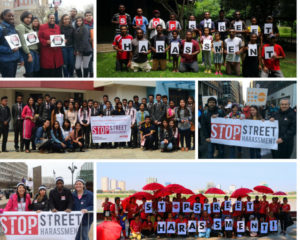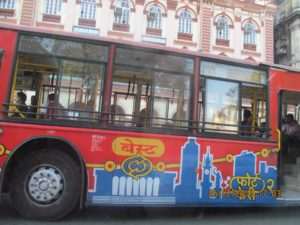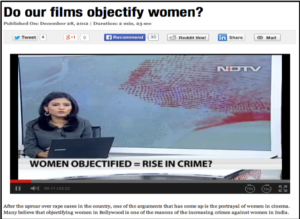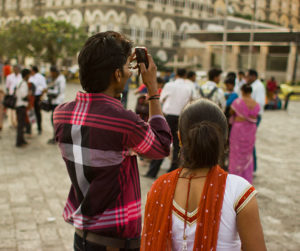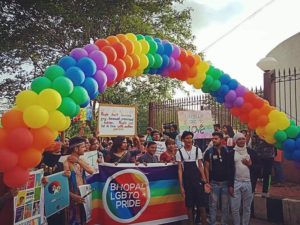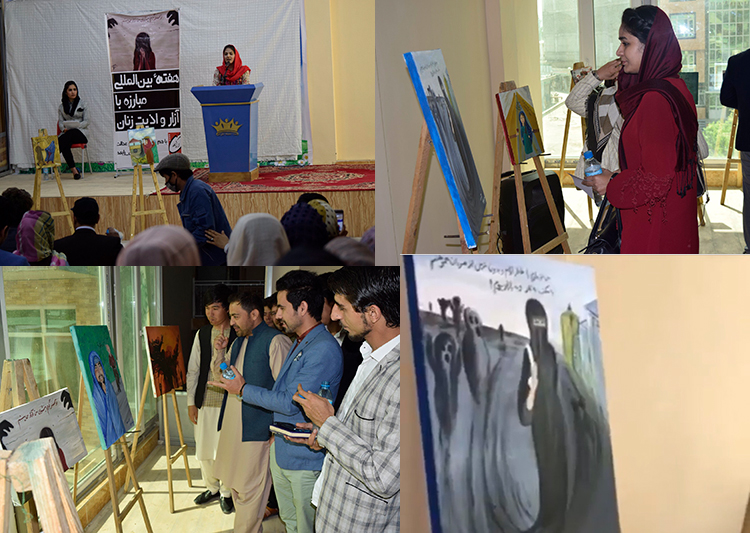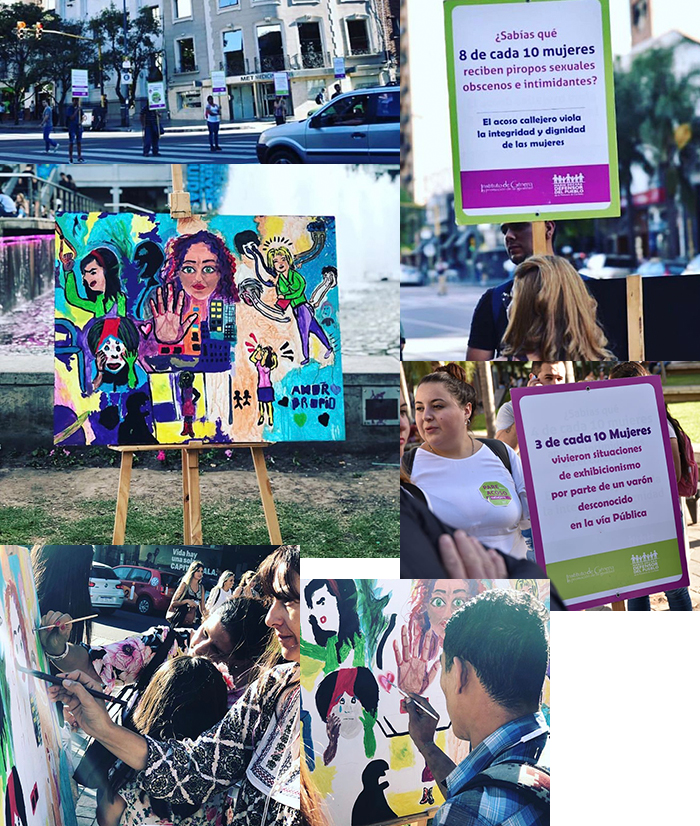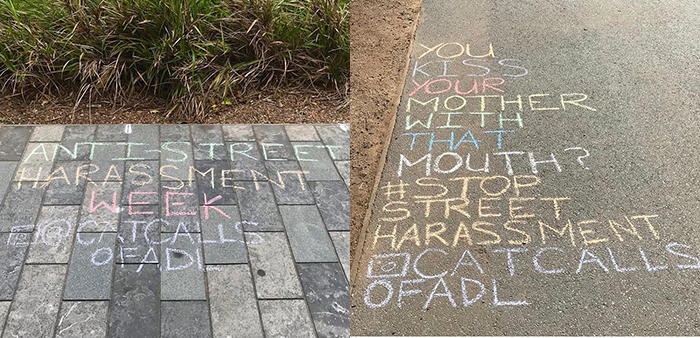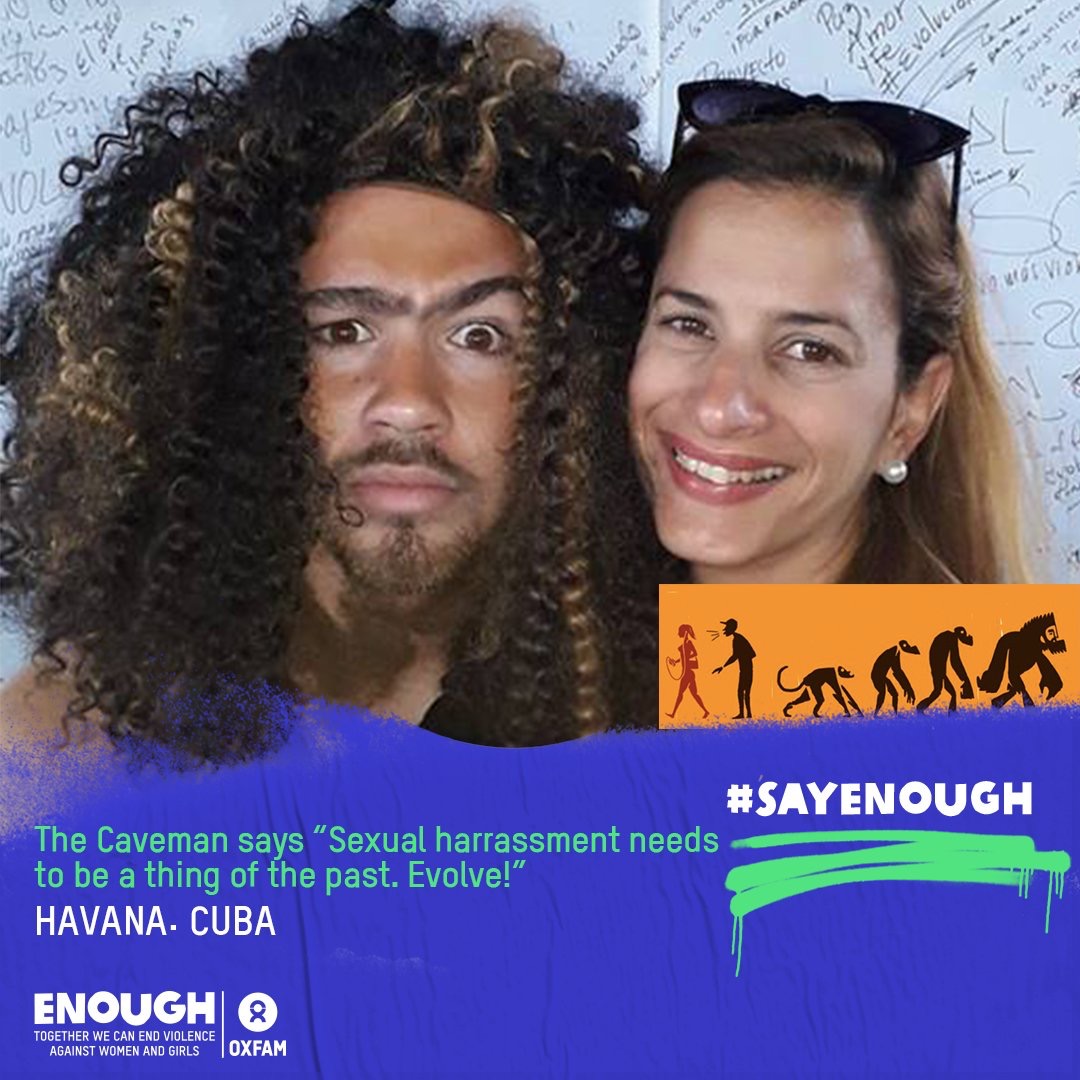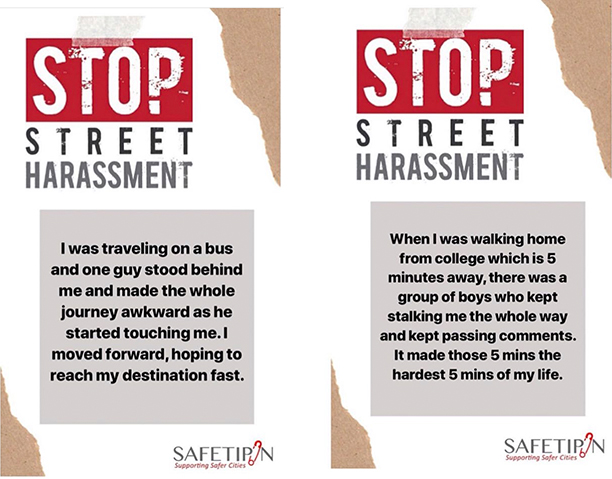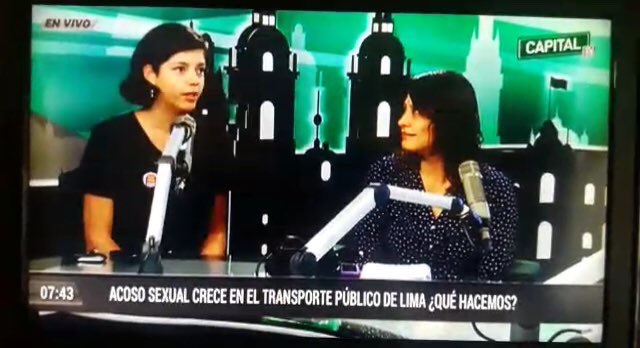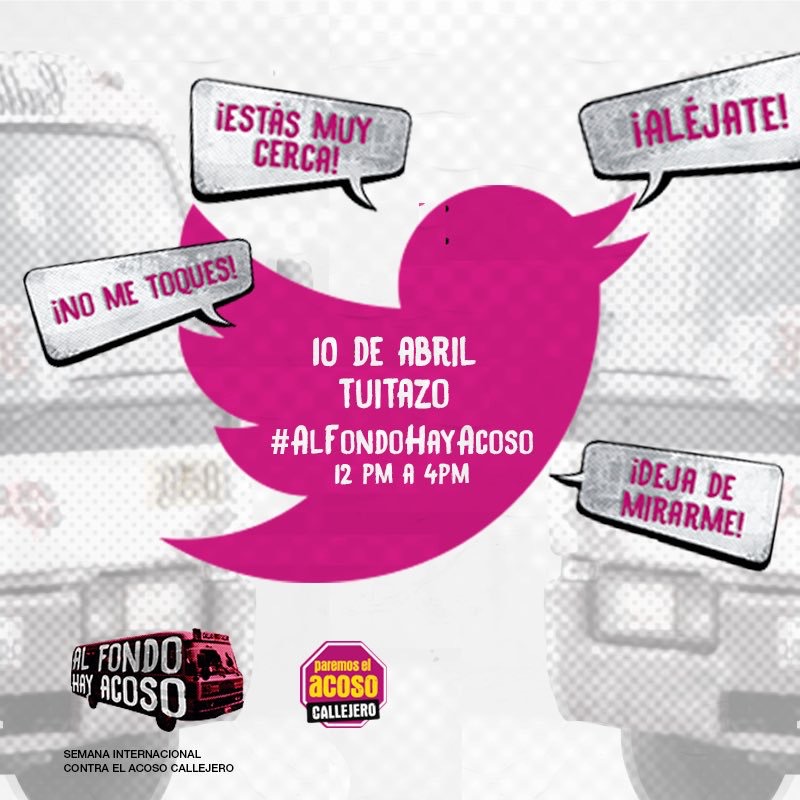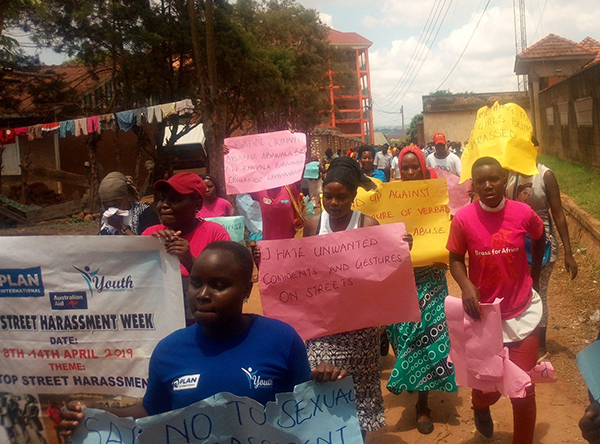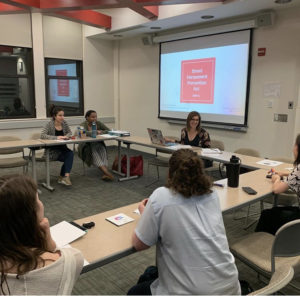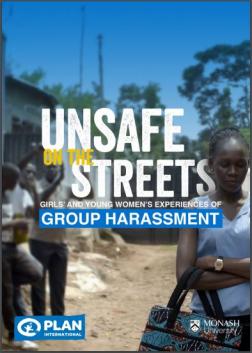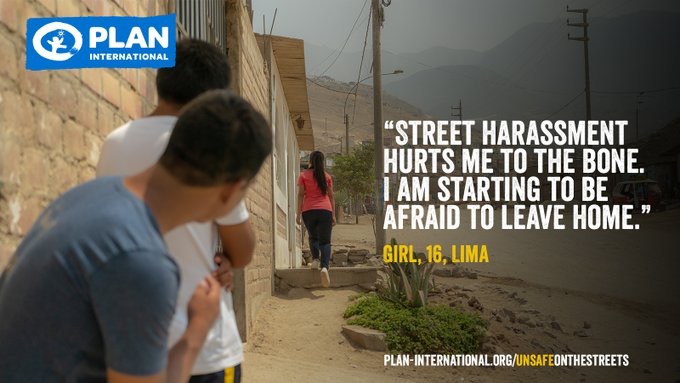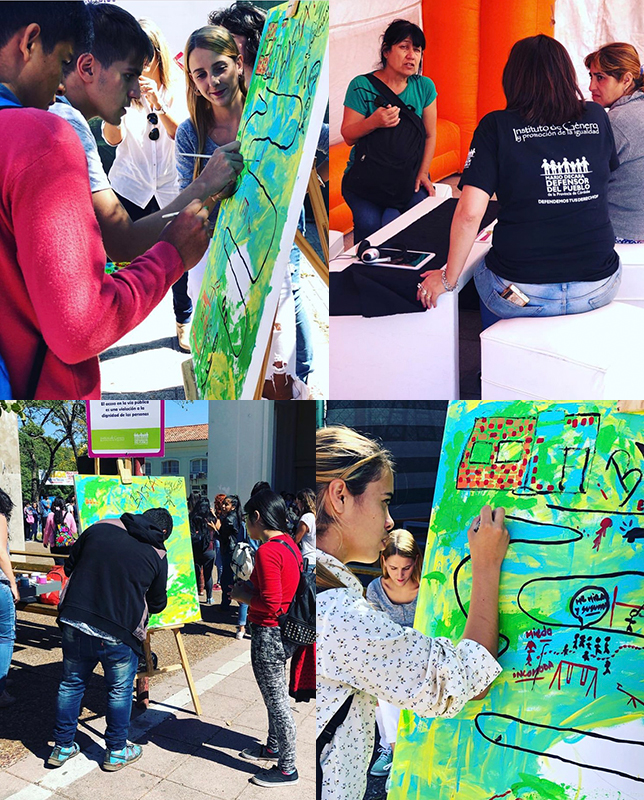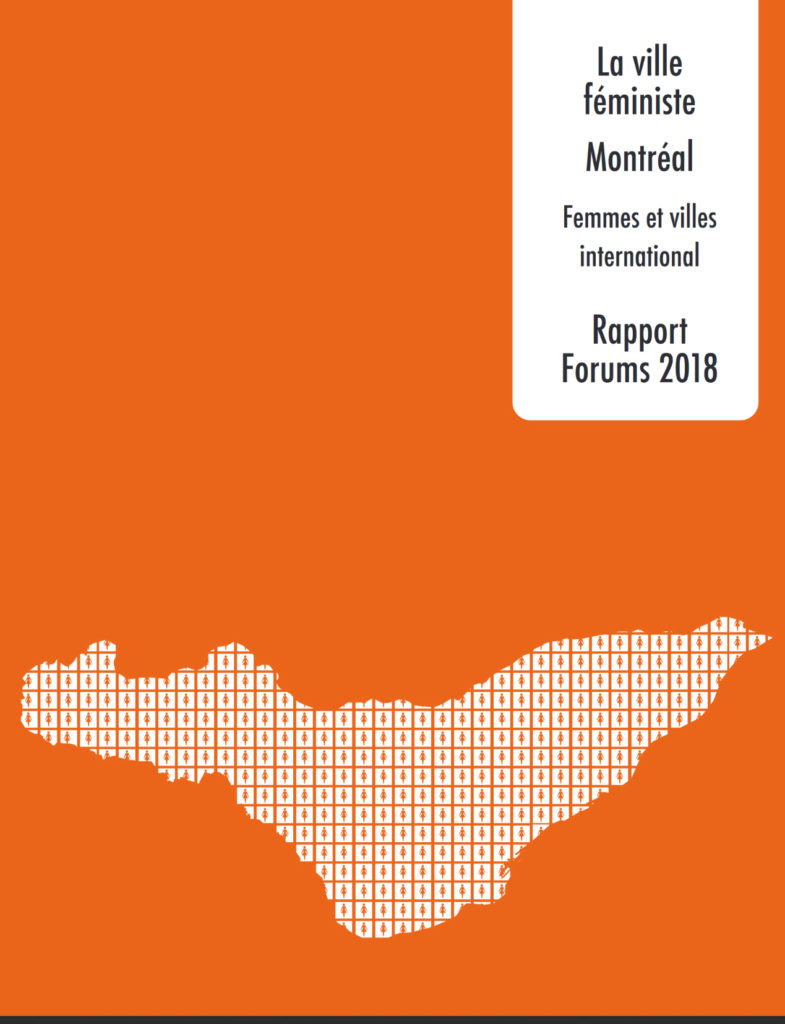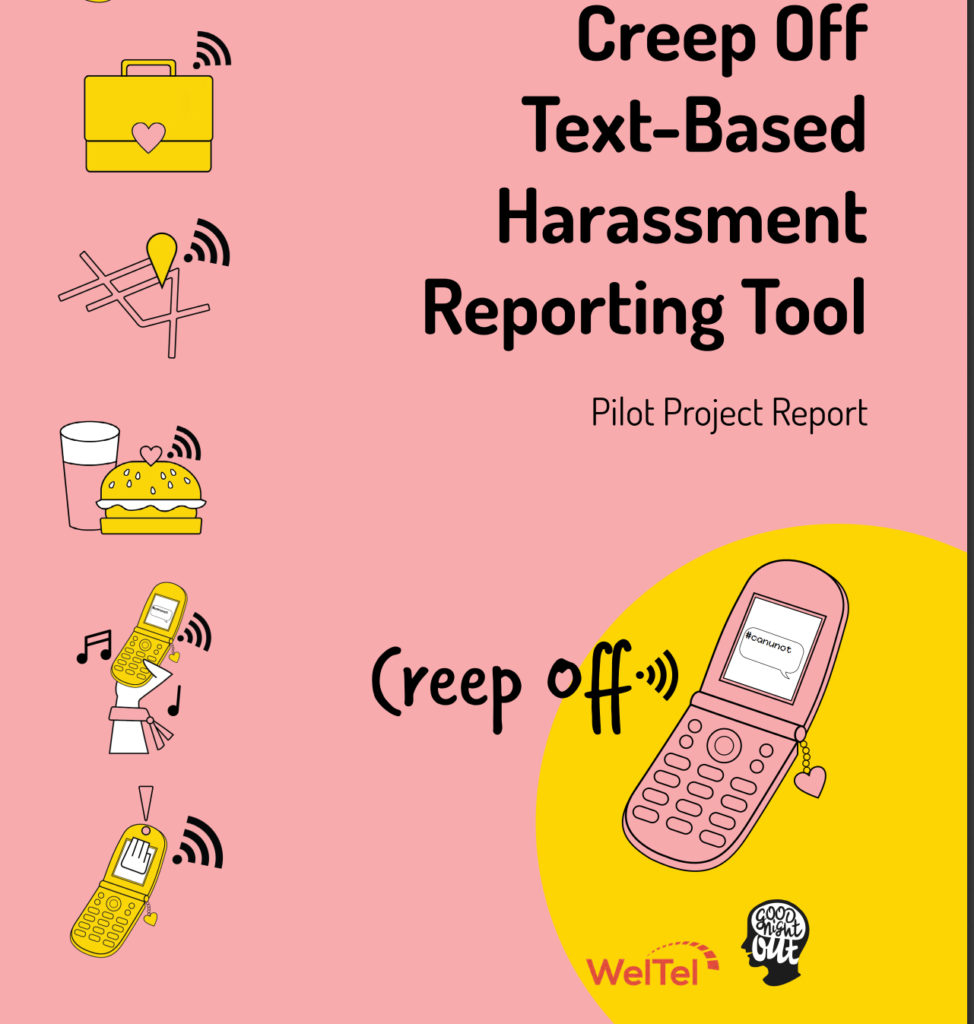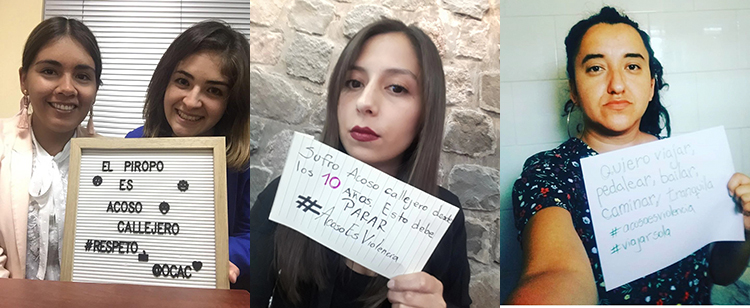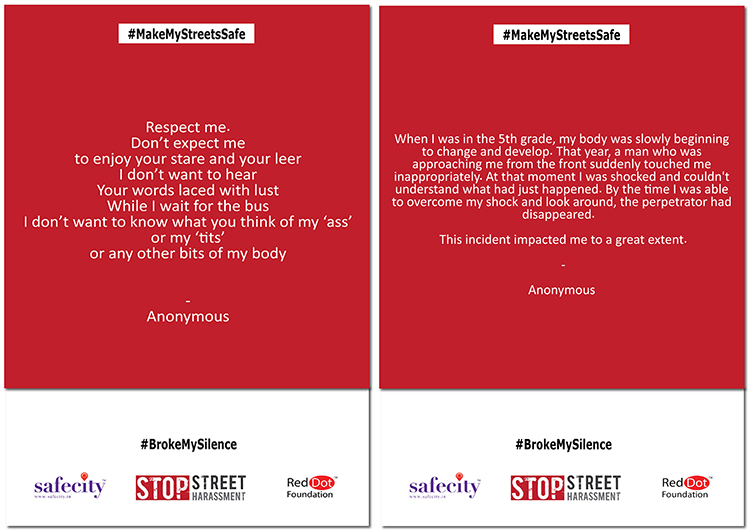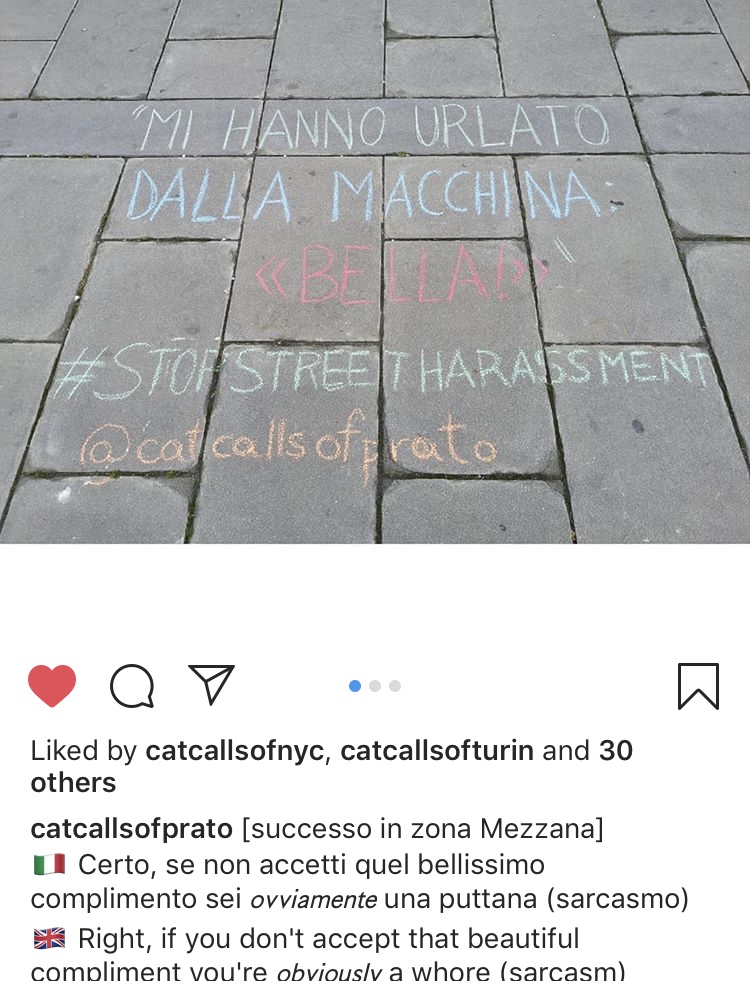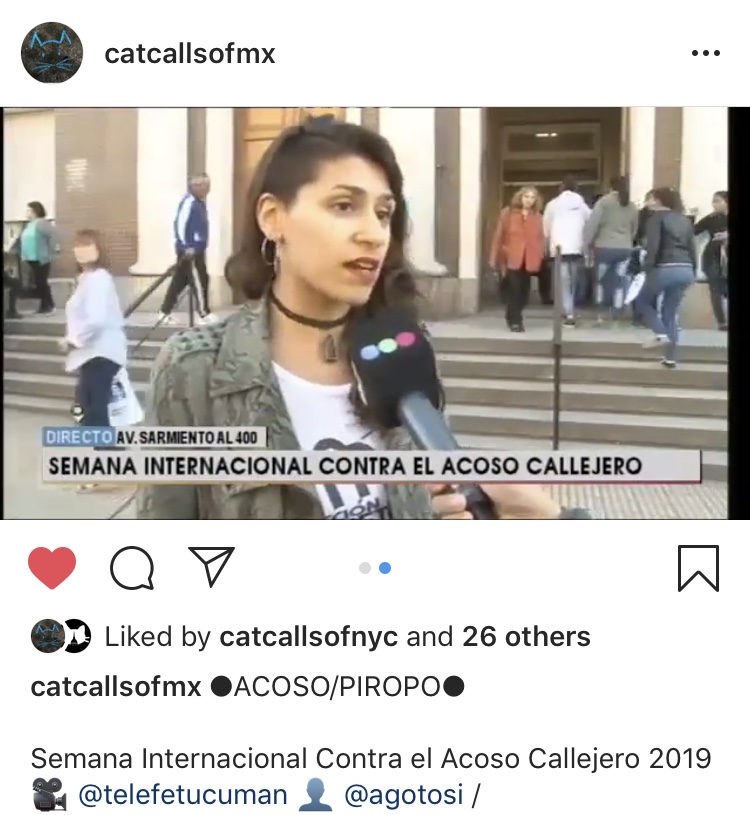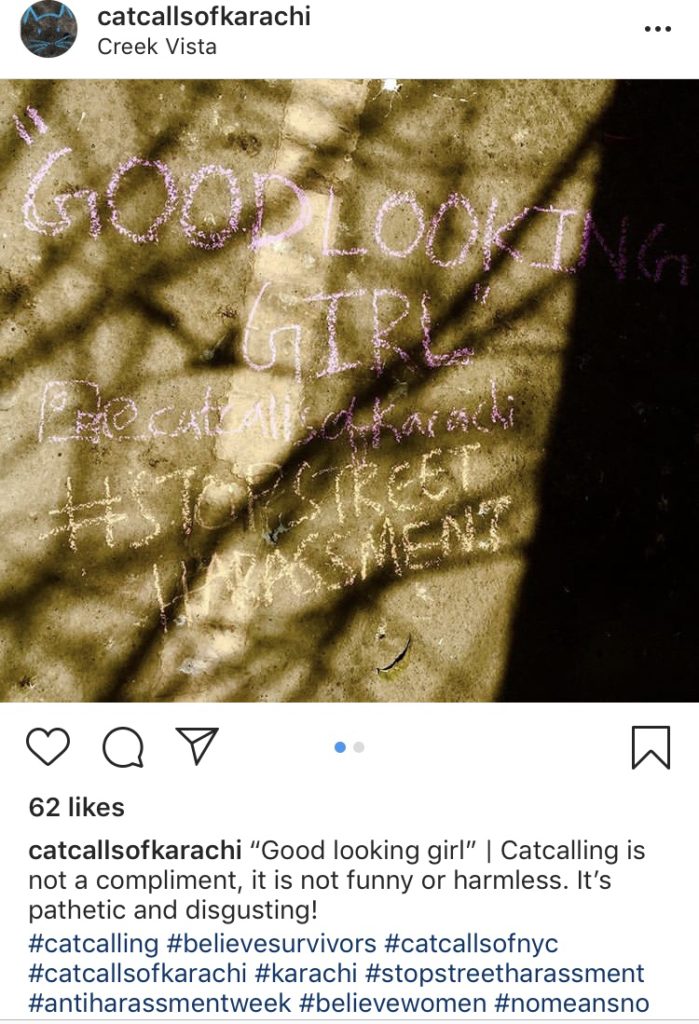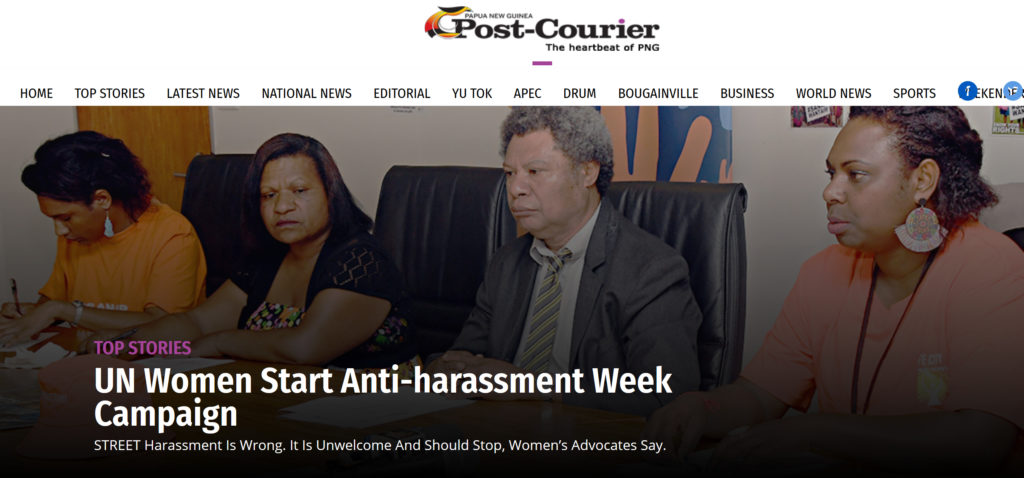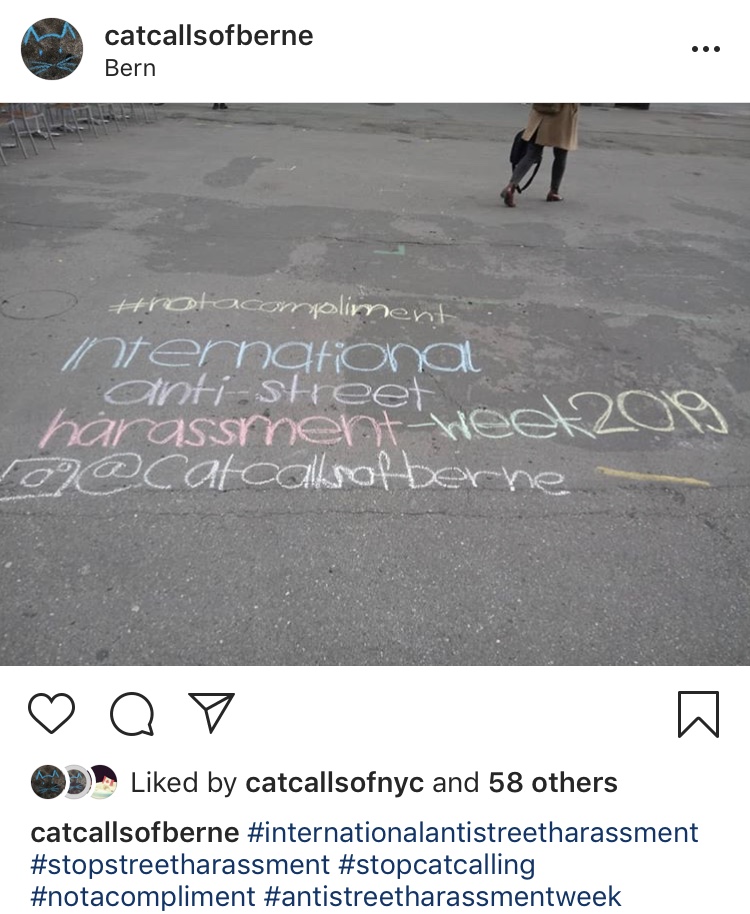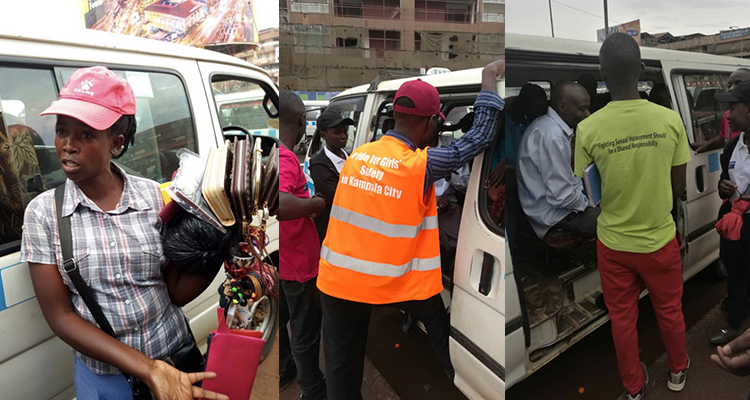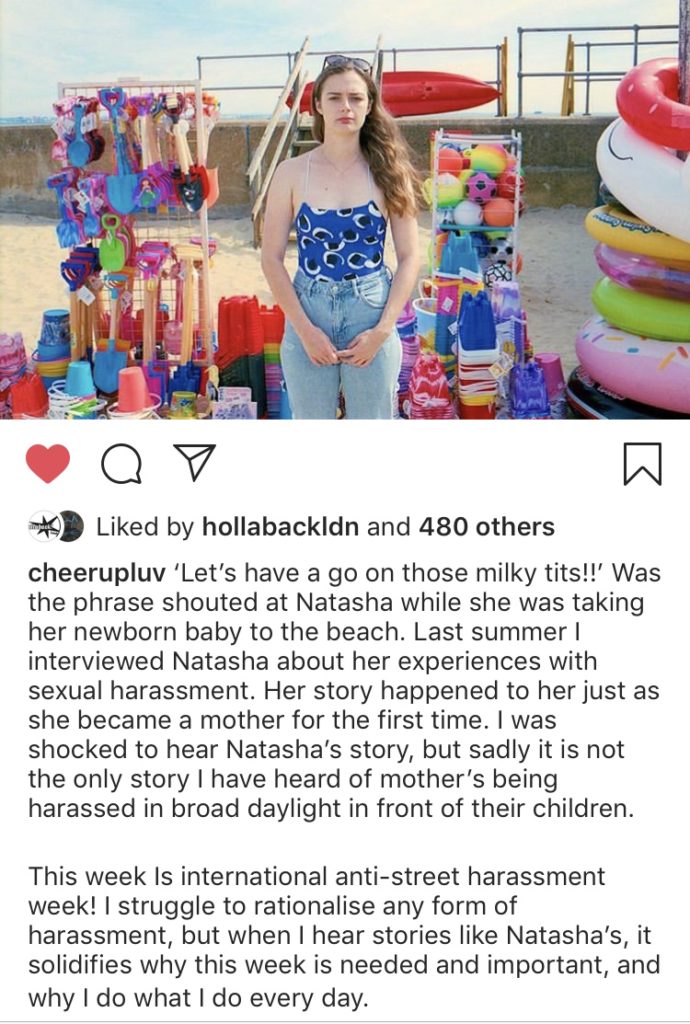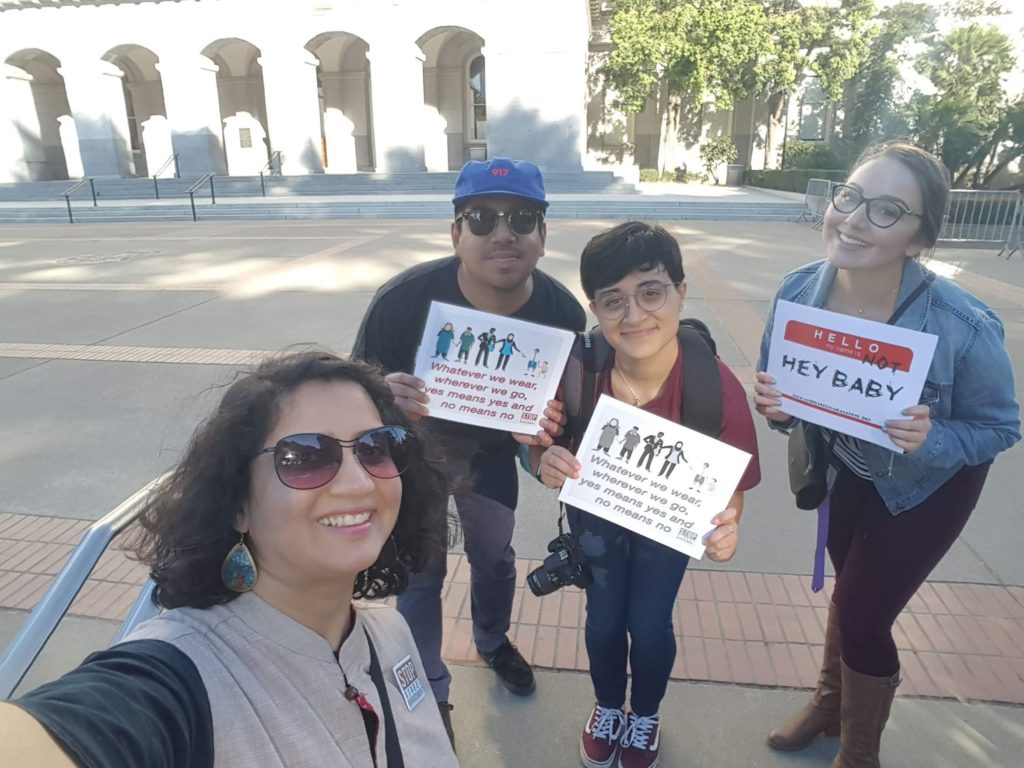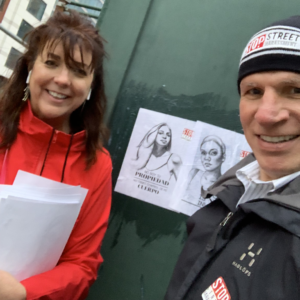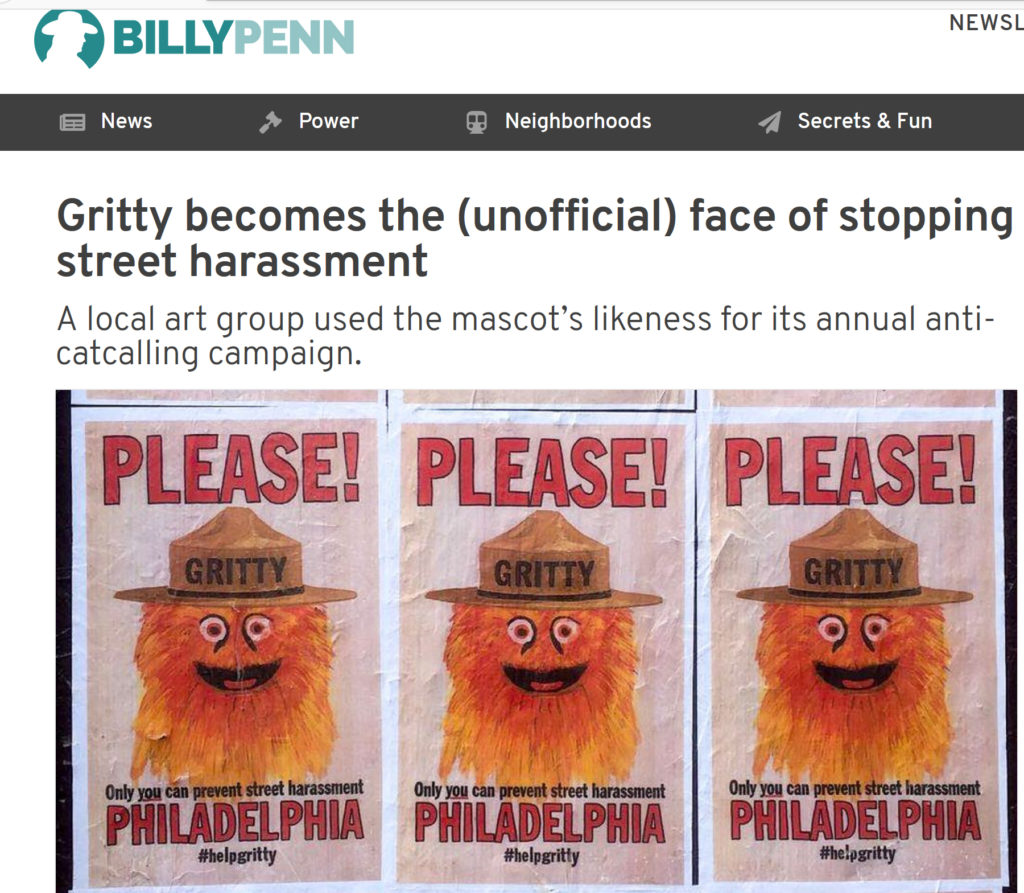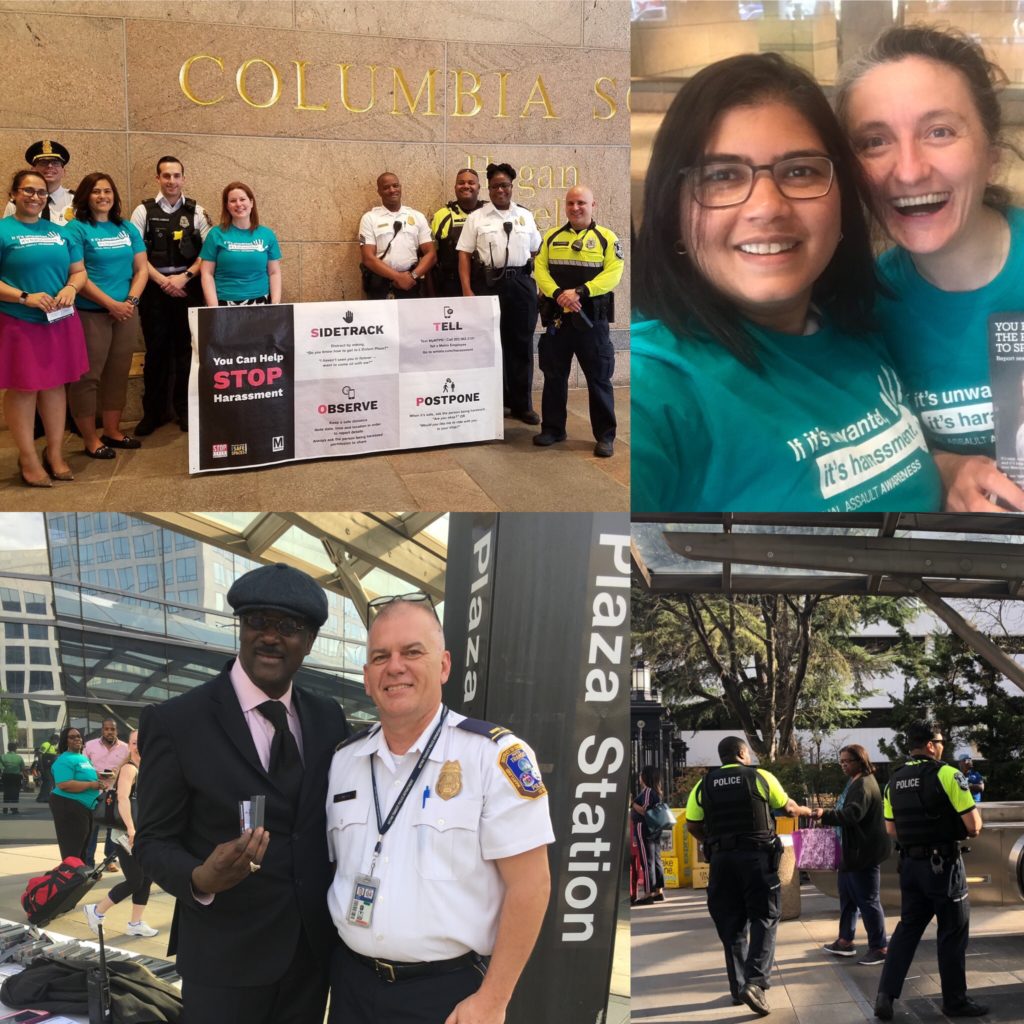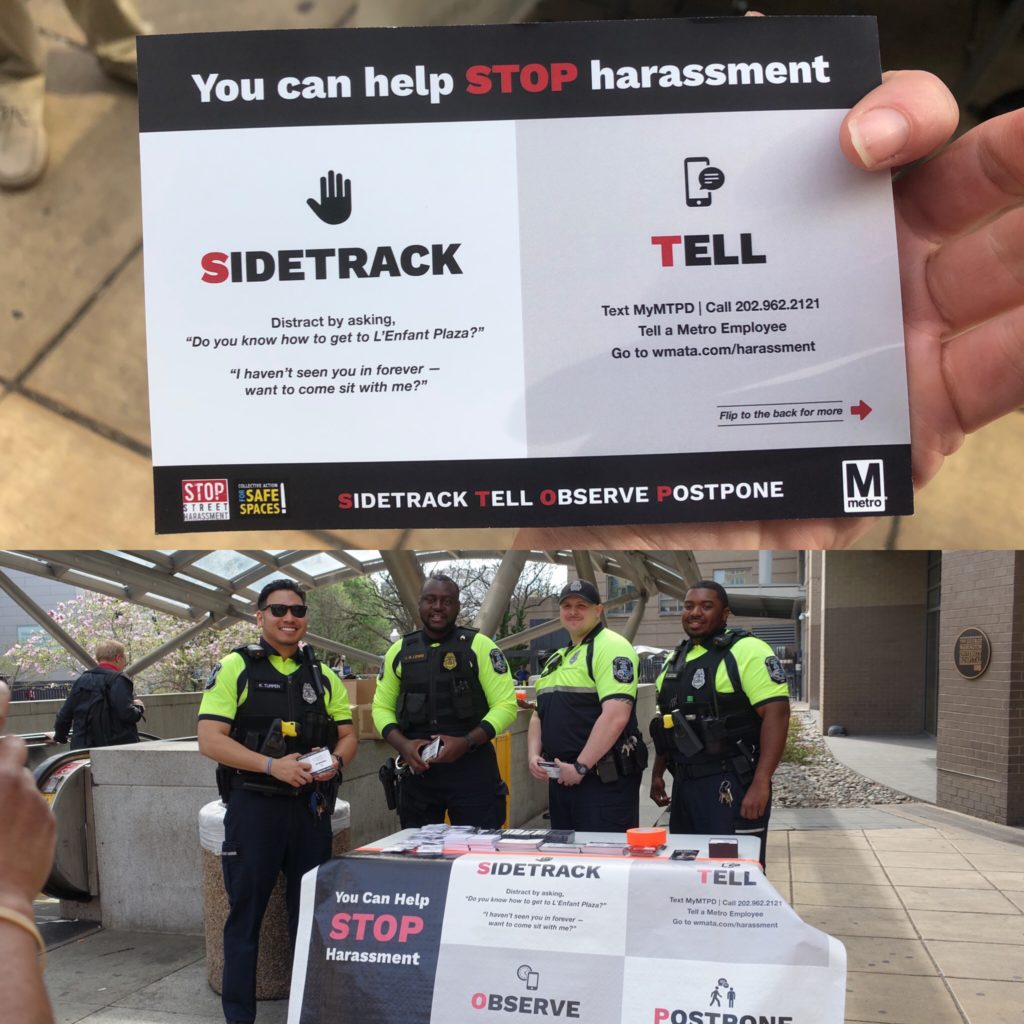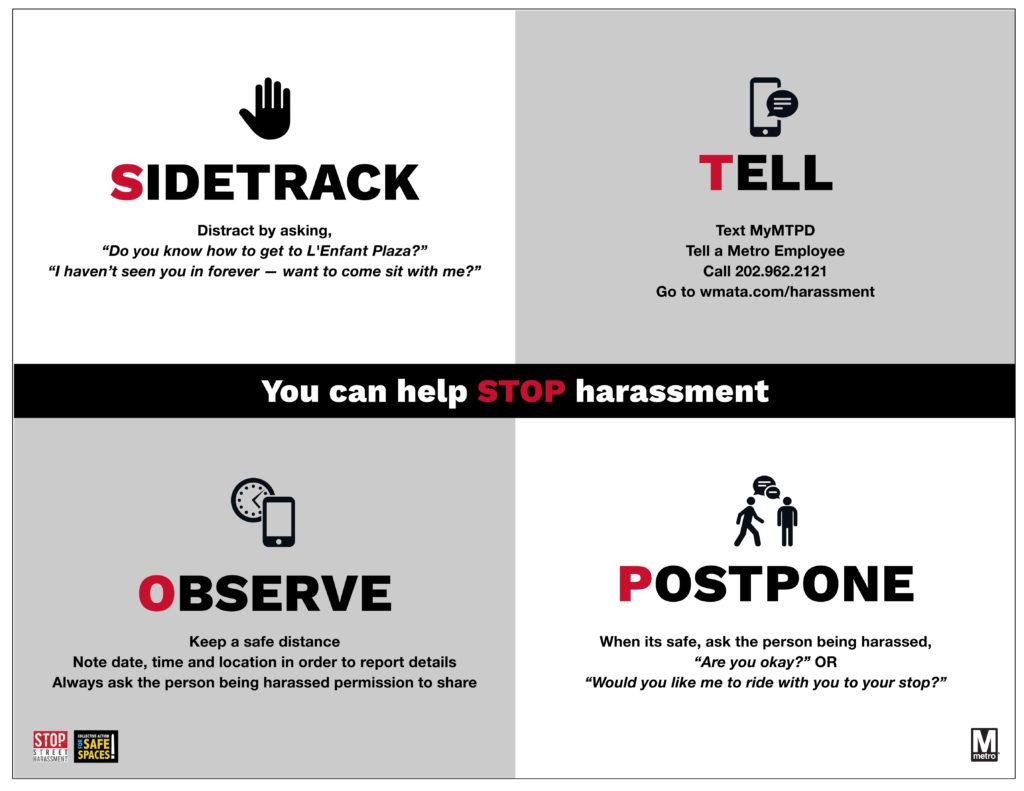Day 5 of International Anti-Street Harassment Week has concluded!
Here’s a photo album (I’ll update it each day). Here are some of the actions that took place –>
Argentina:
1. Accion Respeto Tucuman did street action to raise awareness.
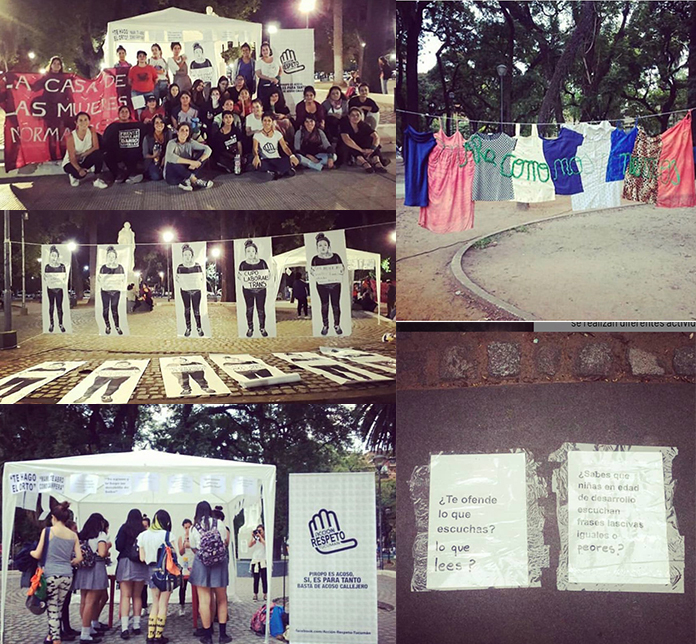
2. Instituto de Genero invited people in Cordobo to help paint pictures about street harassment. They also handed out flyers, held up signs and did other street action.
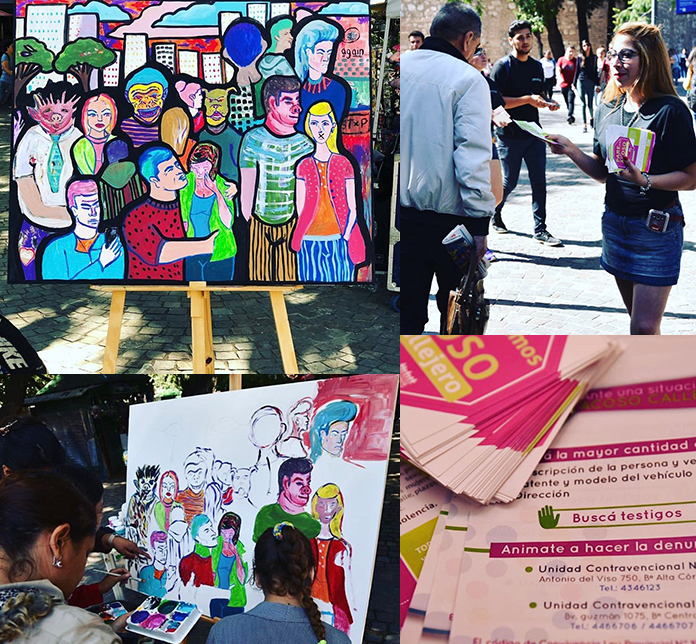
Germany:
CatCalls of Berlin did more chalking.
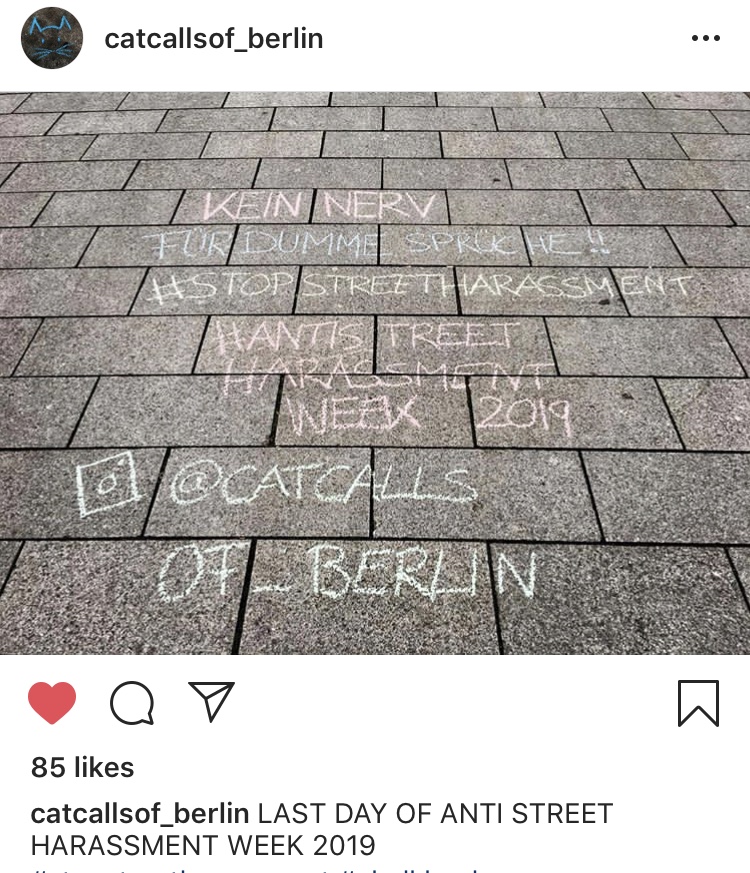
India:
Safecity held a community meet-up in Premnagar, Pune, and children and youth made colorful charts related to street harassment. This was followed by discussions and sharing of experiences facilitated by Mona More, their Program and Outreach Officer in Pune. The lack of electricity did not deter this young crowd from participating and they drew by torch light [flashlight] wholeheartedly.

The Netherlands:
Hollaback! Nederlands rebranded as Fairspace and launched this video.
Also across the week, they interviewed five people about their experiences with #everydayharassment and shared them as videos. Here is a video example.
Uganda:
PLAN International, Australia Aid and Youth Empowerment Link held a march in Makindye to raise awareness.

USA:
RVAP and the University of Iowa School of Social Work did tabling at the University of Iowa to spread information about and awareness of street harassment.


